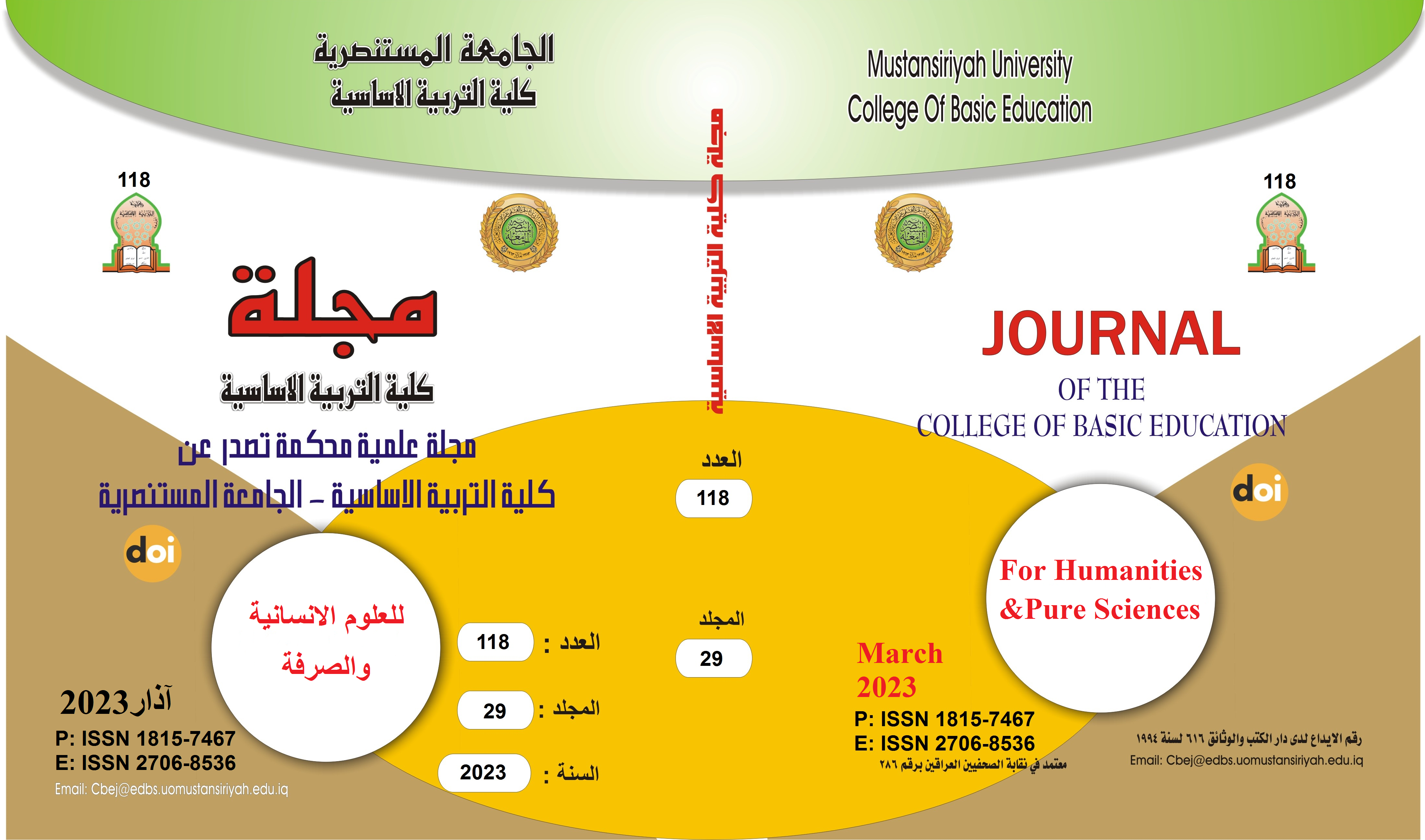Mathematical enlightenment among middle school students
Main Article Content
Abstract
Summary of the research:
Pedagogy means the methods, principles and methods of education, and the group of works used by the teacher in the context of his job in transferring knowledge and education to his students within a school context. (Hill et al, 2008.23)
As for the pedagogical knowledge of content (P.C.K), it is a combination of content knowledge and pedagogy together, which corresponds to the teacher's own experience to be able to expand his understanding on how to teach a specific topic by adapting to the learners' needs and abilities, and is represented in the teaching strategies and methods used in teaching specific curriculum content within an educational context. Specific oriented to achieve specific educational goals and values. (Shulman, 1986: 15) Also, mathematical enlightenment refers to the necessary amount of mathematical knowledge of the concepts, principles, skills, and processes that are related to mathematics, and the ability to use mathematical thinking methods in solving problems, in addition to knowing the historical development of mathematics and the contributions of Arab and Muslim scholars to this development. . (Badr, 2010: 204), including the goal of the current research, to identify the mathematical enlightenment of middle school students, and to achieve this goal, the following null hypothesis was formulated:
- There is no statistically significant difference at the level (0.05) between the mean scores of the second intermediate grade students and the hypothetical average in their Al-Tanour mathematical test. The researcher adopted the descriptive correlational approach, and the research sample was randomly selected stratified from the research community, consisting of (1674) male and female students in the intermediate schools of the six general directorates of Baghdad Education, and to achieve the goal of the research, the following tool was prepared:
- Al-Tanour mathematical test for second grade students, consisting of (22) items of multiple choice type with four alternatives. The validity of the test was confirmed, and the stability coefficient was acceptable by using the equation (Kueder-Richardson-20) to find the test, as it reached (0.81) for the Mathematical Enlightenment test, and by using the following statistical methods: (t-test for one sample, and Pearson's correlation coefficient), The results of the current search showed the following:
- Middle school students have a weak level of mathematical enlightenment.
In light of the research results, the researcher made some recommendations, including:
- Activating the mathematics laboratory and enriching it with educational tools that would improve the level of mathematical enlightenment of students by increasing their knowledge, and linking mathematics to their reality.
Some suggestions were put forward, including:
An analytical study of middle school mathematics books according to the dimensions of mathematical enlightenment.
Keywords: mathematical enlightenment, middle school students.
Medium
Article Details

This work is licensed under a Creative Commons Attribution-ShareAlike 4.0 International License.
